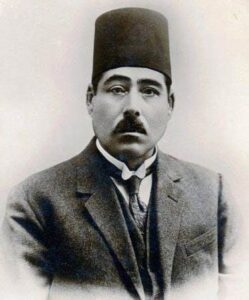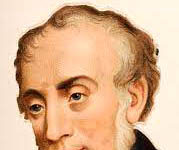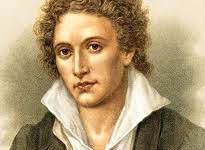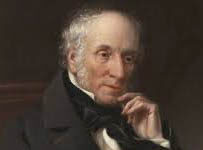Ma’ruf al-Rusafi: His Life and Poetry

Ma’ruf al-Rusafi His Life and Poetry
Ma’ruf al-Rusafi: His Life and Poetry
Birth and Parentage
Ma’ruf al-Rusafi (1875- 1946) was a distinguished modern Arabic humanitarian poet and critic.
He was born in 1875 to a mixed Kurdish-Arab family. The family was poverty-stricken. Little is known about his father. He was solely brought up by his mother at his grandfather’s house. He was allotted a dark room where he was inclined to solitude and meditation. His mother had a long hope to give her child an adequate education.
His mother sent him to one of the maktabs where he managed to memorize the Holy Koran and learned the elements of calligraphy. Then he went to a primary school namely at Madrasah al-Rashidi. But he failed in the examination and hence he devoted himself to literary studies. During that time, he went into contact with Al-Alusi and Abbas al-Qassab.
As he was poverty-beaten he became a school teacher in Al Rashadiyyah and then to Al Barudiyyah in Bagdad. He worked there till 1908. During this period he took to writing poetry. In 1941 he left Falluza for Bagdad and lived in Adhmiyya till his death on 16th March, 1946.
Poetic Contributions
He is considered to be one of the greatest poets of modern Arabic literature. But he wrote very little compared to the poets of his generation. A single Diwan was first published in 1910 in Beirut and then in large to include some of his later poems in 1949. It contains social poetry, political verses and love poems. Al-Rusafi also translated some Turkish works into Arabic and wrote some valuable literary criticism.
The literary influences on Al-Rusafi were entirely Arabic. He was fascinated first by Mutanabbi and then by Ibn Malik, half of whose ‘Alfiyya’ he had learned by heart. The skepticism of Al-Marufi is reflected in his poetry too.
Among the neo-classists Maruf al-Rusafi was a close affinity with Hafiz Ibrahim and echoes his sentiments on national and social issues. Shwaki and Mutran also influenced him but a little.
Maruf al-Rusafi believed in God as displaying Himself in every individual life is beyond question. But it is hard to know exactly what he thought of Muhammadism. He certainly criticized Muhammad in his book entitled ‘The Personality of Muhammad’.
The philosophical poems of Rusafi deal mainly with the mysteries of the universe, especially the phenomena of life and death. Yet in his philosophical poems, he produced nothing new that can be safely added to the achievements of original philosophers.
Like other poets, Maruf al-Rusafi is not free from the panegyric form of poetry, but the number is very few and mostly full of personal complaints and pessimism. He especially praised Abdul Muhsin al-Sa’dun, who was the Prime Minister of Iraq in the late twenties and who used to help Rusafi financially and tried to bring about reconciliation between him and King Faisal I. He also praised General Nuri Pasha al-Sa’id; several time Prime Minister of Iraq, Abdul Latif Pasha al Mandil and Sayyid Mudahhir al- Sha’wi.
In the field of satire Rusafi composed some most poignant forceful lines. They were mostly directed against the critics of his poetry, at times he did not refrain from using obscene language but fortunately, those fine verses were not included in his Diwan.
Although Maruf-al-Rusafi tried to break the old tradition of poetry, he was not altogether free from them. Thus he started some of his poems with self-phase or weeping over the abode of a departed beloved and imitated the diction of Pre-Islamic poems and even reproduced the same figures of speech. Moreover, pornography held a special fascination for Maruf but those poems savoring immorality were cut out of his Diwan. Amongst other books by him is ‘Bada’ at la Khala’ah’ (Beauty and not Immorality). He even composed after the fashion of Abu Nuwas and other Abbasid poets, some love lines on masculine beauty.
In his elegies, he is more natural than in his panegyrics. He wrote elegies even upon his enemies. His best elegies are mostly composed on Seikh Muhyyiddin al-Khayyat, Mahmud Shawkat Pasha, Mahmud Shukri al-Alusi.
The most outstanding service of Rusafi towards Arabic poetry lies in his versification of new themes and his invention of new figures of speech. His Favorite similes were to liken the sunset to a glittering sword dripping with, the tears of an orphan, intermingled with blood. He spoke of the sun as raising its sleeve made wet with its molten light, or as a damsel bidding her lover farewell and waving her handkerchief. He was fond of comparing the Euphrates and Tigris to two lines of tears.
Rusafi’s hatred of artificiality and imitation was so great that he shunned the arts of rhetoric as far as he could.
Rusafi was capable of using the rarest rhymes, which poets would usually avoid without doing violence to the language. But at times he employed colloquial terms and phrases because he believed that the classical language should be enriched from time to time with foreign words and colloquial expressions, after due polishing. He was very much fond of long matters. Often his verses lacked the sweet music which characterized the poetry of his Egyptian contemporary Ahmed Shawqi who also excelled in his dramatic ability, wider erudition, and colorful vision of life.
The best-known descriptive poems by Maruf al-Rusafi are: Ala Jisr Maude, Alal Busfur, Waqfatun fir-Rawdh.
Among modern inventions, Rusafi described the train and drew and made a comparison between steam power and electricity. He also described the ingenious lines. His description of the watch deserves special mention. Moreover, sometimes he composed Bacchic poems and portrayed scenes of revelry, and described songstress and dancers.
As for the love poems of Rusafi, they lack warmth and strength of emotion. He loved beauty and its entirety and never attached himself to any particular woman. Yet he was far from the adventurous exploits of Omar bin Abi Rabi’ah and Imrul Qais.
By composing his verses in the perfect tradition of neo-classicism, Rusafi gave a brilliant lead to the poets of his age and upcoming generations. Till today he remains the most extensively quoted poet of all the Iraqi poets in the field of modern Arabic literature. 0 0 0.
Ma’ruf al-Rusafi His Life and Poetry
N. B. This article ‘Ma’ruf al-Rusafi His Life and Poetry’ originally belongs to the book entitled ‘Gleaned Essays‘ by Menonimus.
Ma’ruf al-Rusafi
Books of Composition by M. Menonimus:
- Advertisement Writing
- Amplification Writing
- Note Making
- Paragraph Writing
- Notice Writing
- Passage Comprehension
- The Art of Poster Writing
- The Art of Letter Writing
- Report Writing
- Story Writing
- Substance Writing
- School Essays Part-I
- School Essays Part-II
- School English Grammar Part-I
- School English Grammar Part-II..
Books of S. Story by M. Menonimus:
Related Search:
- Ma’ruf al-Rusafi His Life and Works
- Ma’ruf al-Rusafi










